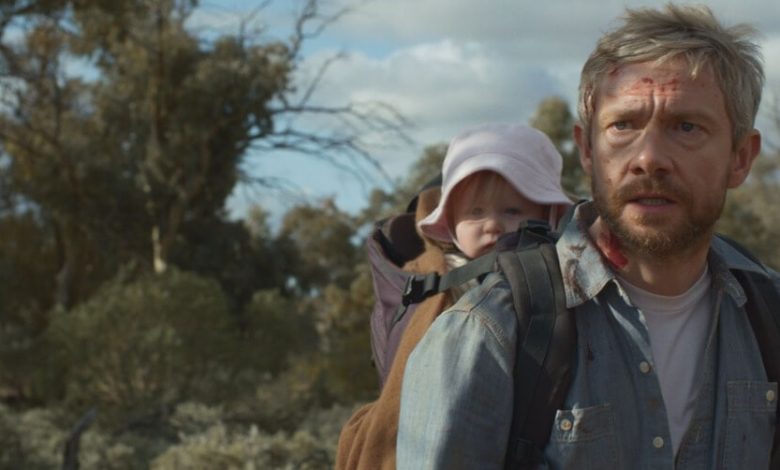
Some of the better zombie stories pay little attention to the undead.
“The Battery” focuses far more on a struggling bromance than those shuffling ghouls. The indie darling “Pontypool” evokes zombie-like humans but doesn’t give them their close-up. Even “The Walking Dead” gets plenty of mileage from its human-based rivalries.
The same can be said of the Netflix original “Cargo.”
Martin Freeman stars as Andy, a father doing everything possible to protect his very young daughter during a zombie outbreak.
Yes, there’s no more Chuck E. Cheese pizza to endure, but in every other way life is decidedly worse following the outbreak.
Plus, Andy’s wife Kay (Susie Porter) suffers a zombie bite early in the film. He realizes he’ll soon be the only person able to protect young Rosie from this gruesome new normal.
Father and daughter head off to a rumored refuge, meeting both friend and foe alike in the journey.
Recent horror films have showcased the incredible power of parenthood. The “Quiet Place” franchise may be the best example, as John Krasinski and Emily Blunt sacrifice everything to keep their children alive.
There’s a similar sentiment fueling “Cargo.” Those eager to see hundreds of zombies flooding the screen will be disappointed.
Based on a seven-minute short, “Cargo” engages in the de facto messaging found in some of zombie films, touching on fracking from a progressive point of view. Those elements may feel incongruous at times, but they never lessen the story’s impact.
This is a father protecting his child, and that’s never nudged out of the frame.
31 Days of Horror:
- “Splinter“
- “Rogue“
- “Train to Busan“
- “The Battery”
- “Eden Lake“
- “Housebound“
- “Fresh“
- “Bone Tomahawk“
- “Another Evil“
- “The Blob“
- “The Descent Part 2“
- “Hush“
- “Wrong Turn” (2003)
- “Tourist Trap“

Not sure why you’re underestimating the leftward bent in some of these, but yeah, this is all about the evils of fracking — the one actual villain is an employee for a gas company — and the infected literally bury their heads in the sand, while also digging, in a metaphor for “white man” raping native land. All the aboriginals are noble, flawless, knowledgeable beyond what the whites could possibly understand, and don’t get infected unless they’re tainted by white ideas. Every white person except the aboriginal ally old woman is suffering some kind of delusion; there’s even a family who dresses up and has parties in the middle of the apocalypse, presumably because they’re too daft and oblivious to understand what’s happening, or to keep their children living in a delusion. I assume you remember how their fate shakes out.
As for the movie itself, it definitely does lose sight of the father trying to save his daughter, when it takes a big chunk out of the middle dealing with the aboriginal girl, Tumi, and we spend a bunch of time getting cultural lessons until the confusing, stupid ending (piggyback; that’s all I’ll say about that).